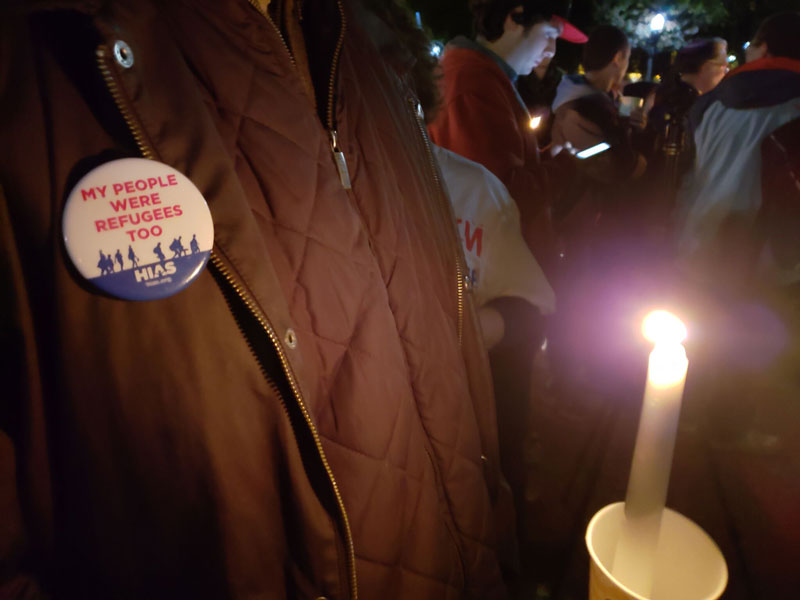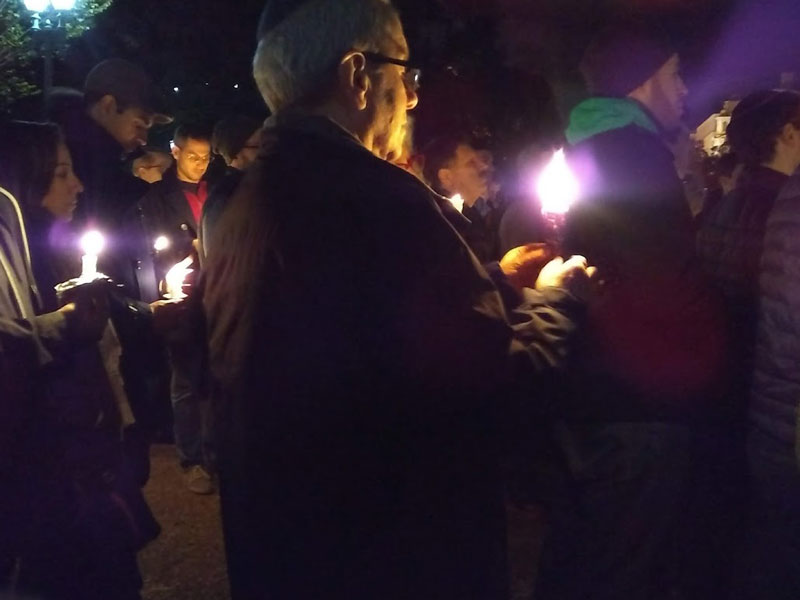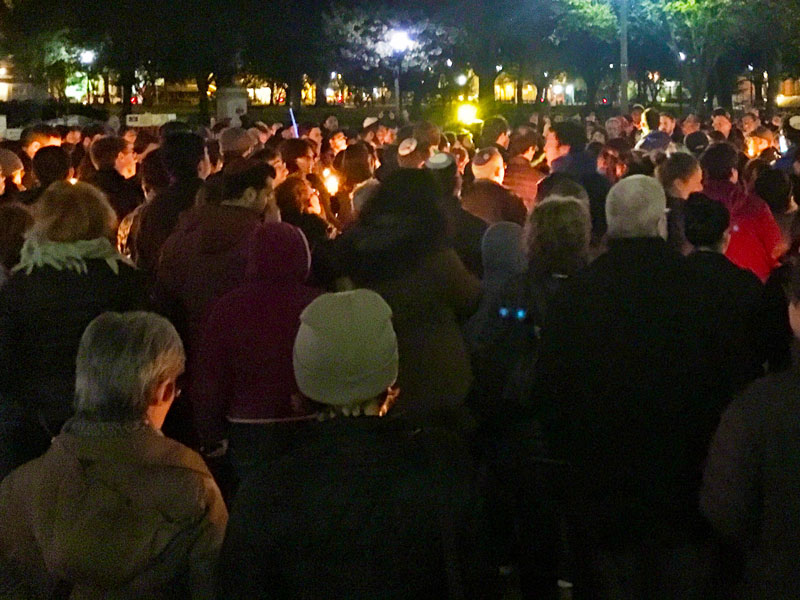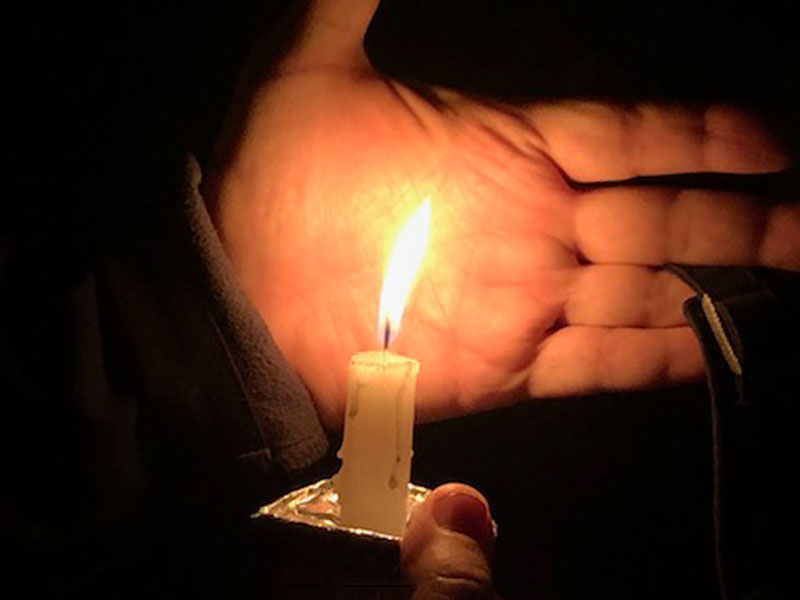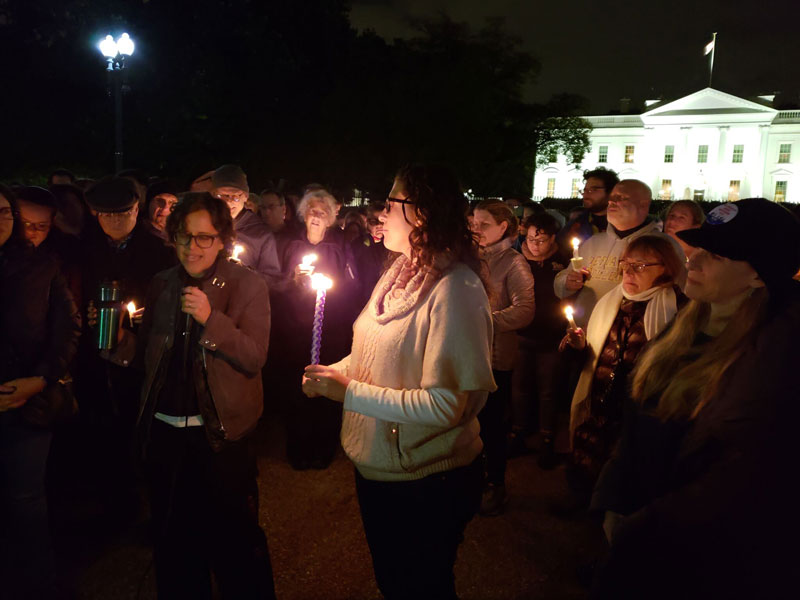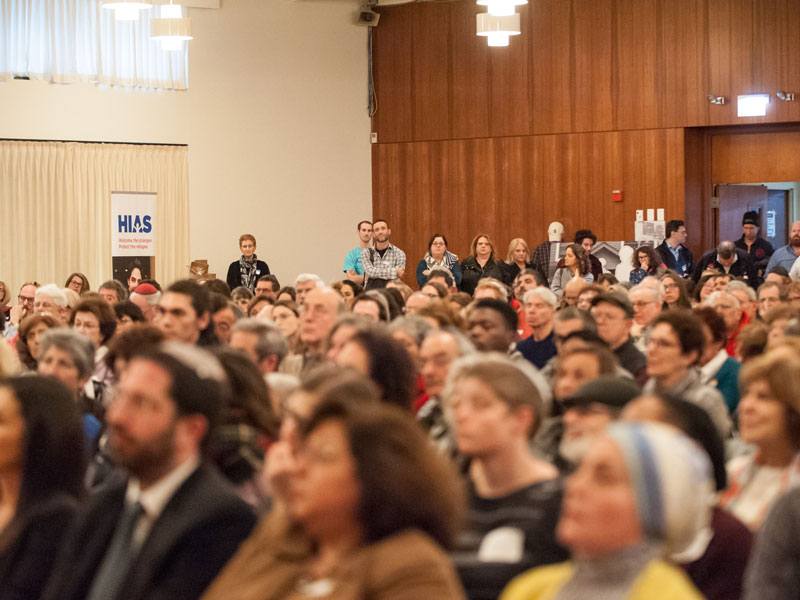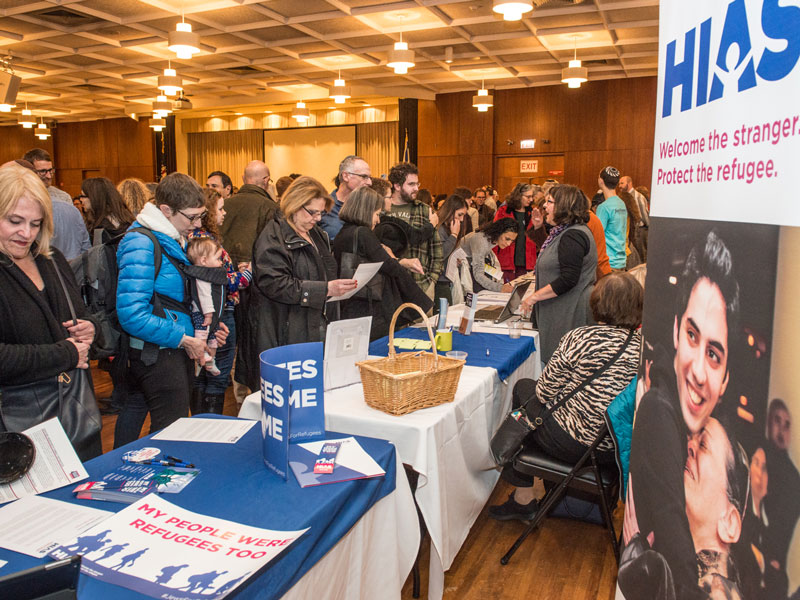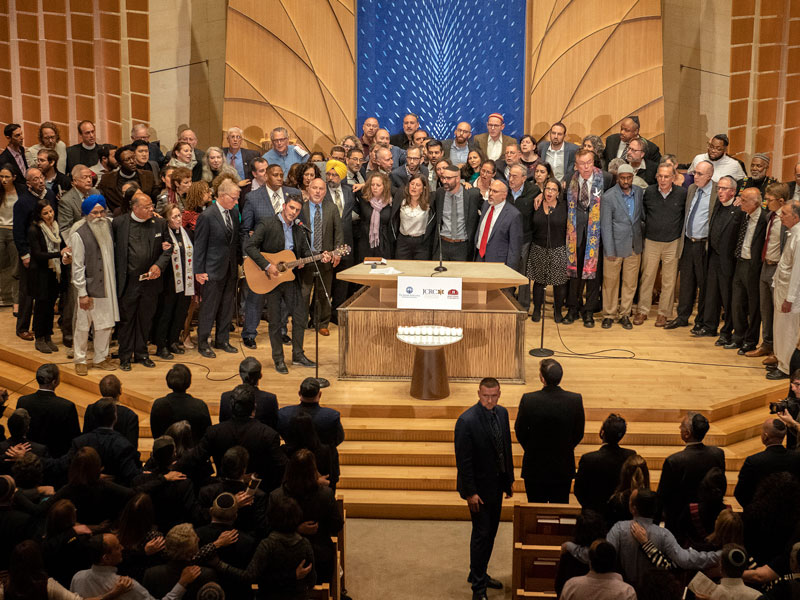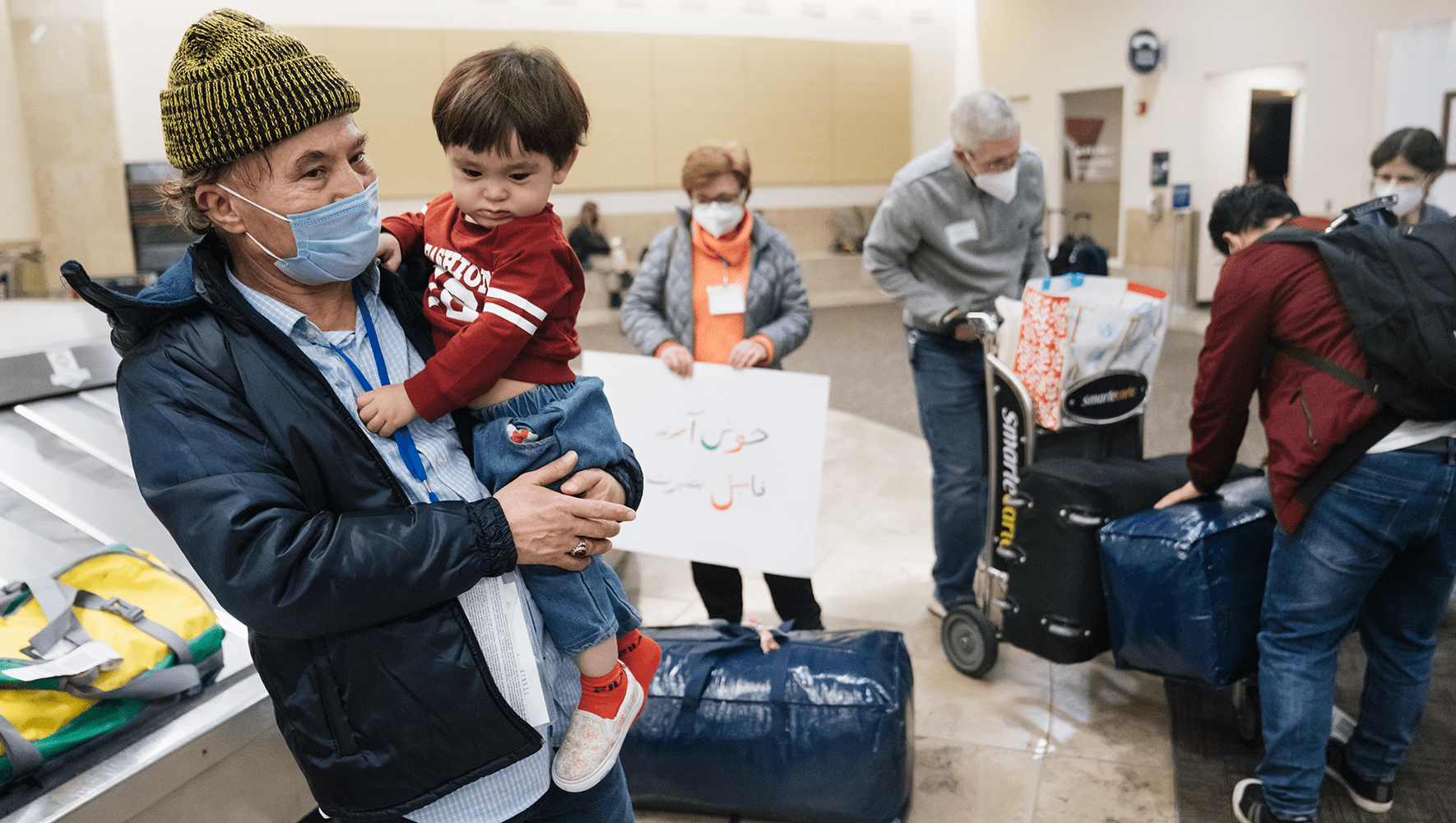After Pittsburgh: the Jewish Community Reacts
By Sharon Samber, HIAS.org
Oct 30, 2018
This past weekend was unlike any other for the American Jewish community.
The mass shooting that killed 11 people at the Tree of Life synagogue in Pittsburgh on October 27 was the deadliest attack on Jews in U.S. history.
HIAS was thrust into the national spotlight with a stunning and disturbing connection to the accused perpetrator, Robert Bowers. Shortly before the massacre at the Tree of Life synagogue, Bowers’ hate was posted for all to see on social media: “HIAS likes to bring invaders in that kill our people,” he wrote. “I can’t sit by and watch my people get slaughtered. Screw your optics, I’m going in.”
Bowers shot worshippers during Shabbat services while reportedly shouting, “All Jews must die!”
Anti-semitism is on the rise in the United States. The Anti-Defamation League identified 1,986 anti-Semitic incidents in the U.S. in 2017, a 57 percent increase from 1,267 in 2016, and also reported a major increase in anti-Semitic online harassment. HIAS has been aware in recent years of detractors and people making negative comments online, but never before has it risen to direct threats or violence.
“There’s too much space now in our society for hate speech and haters,” said HIAS President and CEO Mark Hetfield. Tolerance of hate speech particularly concerns Hetfield and he noted how imperative it is for people to address it in their families and communities. “We have to stand up to it, we have to report it,” he said. “We can’t look the other way. We all have a role to play in this.”
Communities across the country have come together over the last few days for vigils and prayer. The outpouring of grief and support, both heartbreaking and heartwarming, continues as people search for a way to make sense of the violence, deal with anger, and seek solace.
Hundreds stood at a vigil across from the White House Saturday night, singing and comforting one another, but also voicing the need for action. Rabbi Shira Stutman, the senior rabbi at Sixth & I synagogue in Washington, D.C., reminded the gathering that the day’s Torah portion was both about welcoming the other and the concept of a minyan (a group of ten), and its importance in Judaism.
“We are much more than a minyan here,” she said. “We are the minyan that’s going to make it stop.”
In Chicago on Sunday, hundreds turned out for the Jews for Refugees Assembly–convened by HIAS in partnership with Jewish Child & Family Services of Chicago (JFCS) and a planning committee representing twelve Chicago area congregations–to express support for welcoming refugees and to hear from speakers including refugees from Syria and Uganda. As Jewish Child and Family Services of Chicago tweeted: “Instead of hiding from the hate displayed in Pittsburgh over the weekend, 300+ people attended the Jews For Refugees Assembly yesterday.” HIAS’ Isabel Burton, Director of Programs for Community Engagement, was at the event and echoed the sentiment. “We should use this to advocate for what we believe in and for being a welcoming and safe country for those who need it,” Burton said.
Several events took place around New York on Sunday. “New York City will never succumb to hate, we will never allow ourselves to be divided,” Mayor Bill de Blasio said Sunday afternoon at Temple Emanu-El on Manhattan’s Upper East Side. “We will never allow people to separate us by faith or nationality.” Thousands gathered later that evening at the Ansche Chesed synagogue on the Upper West Side for a memorial service.
Monday evening in Washington, D.C, thousands gathered for an interfaith service at Adas Israel synagogue. Maryland Governor Larry Hogan, Virginia Governor Ralph Northam of Virginia, and D.C. Mayor Muriel Bowser spoke and religious leaders of all faiths joined in prayer and song.
The support for HIAS, whether from Jewish organizations, interfaith groups, or individuals, has been loud and clear. Donations and positive messages have come from longstanding supporters as well as people who had never heard of HIAS before, some just expressing hope and good thoughts, others starting fundraising campaigns on Facebook.
The media’s extensive coverage of the incident has included articles explaining HIAS’ history and current work and examinations of anti-Semitism in America. Author and former HIAS client Lev Golinkin wrote a personal story in the New York Times, James Fallows explained the work of HIAS and its reflection of American values in the Atlantic, and Masha Gessen explained the shooter’s fixation on HIAS in the New Yorker, to name a few.
The emotions surrounding the shooting are still raw and it’s too early to tell how deep the wounds of this tragedy will run. American Jews may feel the freedom they enjoyed in this country is at a crossroads. Synagogues across the country are increasing security but are resolute in maintaining a safe space for all to be welcomed.
Melanie Nezer, HIAS’ Senior Vice President for Public Affairs, said: “We’ll get through this, but there’s no denying that this is a devastating moment. But I don’t think it lessens our resolve. If anything, it makes us feel more strongly that we need to stand up for what’s right.”
